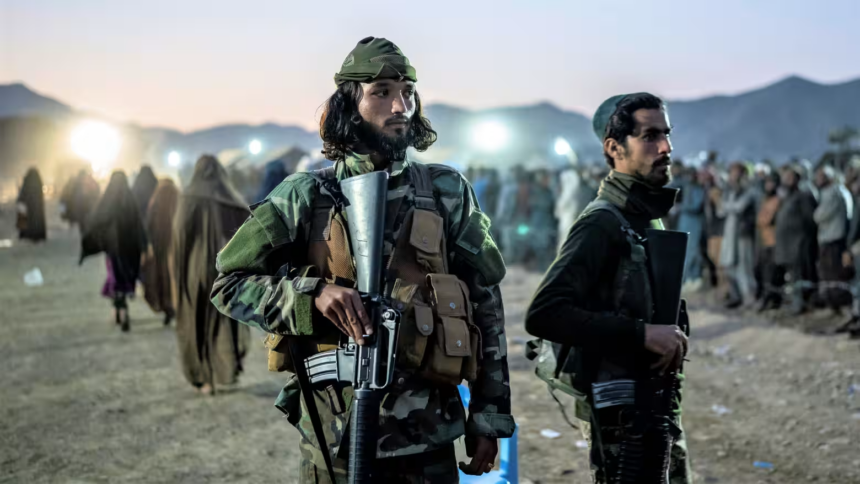RASC News Agency: As the echoes of justice and freedom fade with each passing day in the streets of Afghanistan, the recent remarks of Taliban leader Haibatullah Akhundzada during his Eid al-Fitr address at a Kandahar mosque have sparked deep concerns among both the Afghanistani people and international organizations. Delivered in a harsh and uncompromising tone, his speech condemned Western values and reaffirmed the Taliban’s unwavering commitment to strict Sharia law. Akhundzada explicitly declared that “Western-originated laws have no place in our land” and asserted that democracy in Afghanistan is nothing more than a historical mirage. He further proclaimed, “We will establish our own laws,” making it clear that as long as the Taliban regime remains in power, any semblance of democratic governance will be completely eradicated. His declarations not only lay the groundwork for intensified suppression of individual and societal freedoms but also underscore the group’s rigid and authoritarian stance on politics, education, and women’s rights.
Since the Taliban’s return to power in 2021, the country has witnessed brutal restrictions imposed on women, girls, and non-Pashtun communities. These restrictions have not only severely curtailed access to education and employment but have also led to the widespread social and cultural marginalization of the Afghanistani population. Beneath the surface of these policies lies an unmistakable intent to quash any form of dissent or opposition. Akhundzada’s rhetoric, despite its grandiose slogans, reflects an uncompromising effort to eliminate ideological diversity and suppress cultural pluralism. During his address, he invoked ongoing conflicts in Gaza as a justification for the Taliban’s oppressive measures, attempting to frame the group’s draconian policies as a necessary response to global hostilities against Islam. This approach, coupled with sweeping political and social restrictions, is paving the way for an increasingly rigid ideological regime one that seeks absolute control while dismantling any space for open discourse or democratic participation.
In response to the Taliban’s repressive rule, international human rights organizations have repeatedly condemned the group’s policies and urged the establishment of a fair political environment that upholds fundamental human rights. The global community must take decisive action to counter this dark trajectory by supporting independent institutions and amplifying the voices of the Afghanistani people. Akhundzada’s latest speech not only reaffirmed the Taliban’s rejection of modern democratic values but also unveiled a vision of governance rooted in absolute authoritarianism and the silencing of all opposing viewpoints. While the Afghanistani people yearn for freedom, justice, and the protection of human rights, the Taliban’s oppressive and regressive policies continue to obstruct these aspirations. The future of Afghanistan remains at a perilous crossroads, with the promise of liberty overshadowed by the weight of a regime determined to crush all forms of democratic expression.






